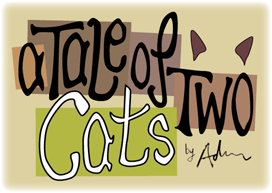Spotlight[Living]: Journey of Mixed Emotions
- Sunday, October 21 2012 @ 06:48 pm EDT
- Contributed by: masodo
- Views: 1,761

Journey of Mixed Emotions
From Vancouver to Stockholm and beyond.
Tips and musings about living and working in Sweden.
Me in Another Skin
What would it be like to peer out of another
To see what they see
But with my brain
My bias and senses
Flesh that is not me
But of you?
As the countdown continues to my first NaNoWriMo, my thinking ranges from, What I am going to write? Should I prepare an outline? Does it matter?...and then to… I live by structure every day, I don’t want structure… to… I need structure! You know what will happen! You will go off in a million directions, and finally back to… Does it matter?. For the first time ever I am truly inspired, motivated, and even driven to write more than just poetry or an assignment. It is quite interesting in its development. Starting with a deep, near disastrous depression only 4 months ago, through the painful frustrations and failure (so far) of interviewing for a new job while trying to act normal in the current one, all the way to a great holiday in England, and back to the dread I feel towards the upcoming dark, cold, winter months, something has shifted inside, the thing that was broken is sorta mending.
As always, along this path, driven by my own inner strength and determination to overcome the major depressive episodes I experience, emerges the breadcrumb trail towards something else. I never fully know what the else will be, nor do I want to think too deeply about it. Years of cognitive style therapy has provided me with the alarm bells that go off if I start to develop a permanent and worn path through my brain network. When I am clear headed, I do not think too far ahead or behind or I know I will miss what is happening NOW. And NOW, or ELSE, it is writing time. Healing time. Miller time (that slipped out, I don’t even like beer). Still a lot of work to do, both on the outside and inside of life, but I can smell the bakery at the end of the path, and a New York bagel is waiting for me.
~




















































 Them All!
Them All!







